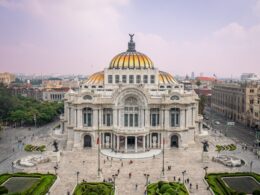Cambodia and Thailand have agreed to halt hostilities after a week of escalating violence along their disputed border, marking their deadliest confrontation in more than ten years. The breakthrough came on July 28 during emergency talks in Putrajaya, Malaysia—a negotiation table hosted by Malaysian Prime Minister Anwar Ibrahim, who currently chairs the Association of Southeast Asian Nations (ASEAN).
The ceasefire is set to take effect at midnight local time (12 p.m. ET Monday), bringing an abrupt end to five straight days of fierce fighting that saw both militaries exchange fire across multiple flashpoints. In the hours leading up to the deal, fighting had continued unabated: Cambodian authorities accused Thai forces of hitting two sites early Monday, while the Thai army reported ongoing clashes in three provinces that same morning. Tensions had been brewing since late May, when a Cambodian soldier was killed during a brief skirmish—an incident that quickly snowballed into open conflict last Thursday.
International Pressure and Mediation
Efforts to broker peace reached fever pitch over the weekend. Both China and the United States directly intervened, urging restraint from the Southeast Asian neighbors. US President Donald Trump personally called the leaders of Cambodia and Thailand, warning he would withhold trade deals unless they ceased fighting. US Secretary of State Marco Rubio confirmed that American diplomats were on the ground Monday assisting with negotiations. China also offered to send observers to help facilitate the ceasefire agreement.
Prime Minister Anwar Ibrahim proposed hosting urgent talks shortly after violence flared, and successfully brought Cambodian Prime Minister Hun Manet and acting Thai Prime Minister Phumtham Wechayachai together for a face-to-face meeting. Following the agreement, Malaysia announced that regional commanders from both armies would meet again on Tuesday, July 29, to ensure direct communication channels remain open.
Regional Stability Hangs in the Balance
Both governments declared their commitment to carrying out the ceasefire “in good faith.” Acting Thai leader Wechayachai, who had earlier voiced doubts about Cambodia’s intentions, said he now expects both sides will honor their word.
While it remains to be seen if this truce will hold—the border has long been a hotspot for flare-ups—the involvement of ASEAN’s leadership plus superpower mediation gives this latest peace effort more weight than previous attempts. For many residents near the frontier who’ve endured shelling and fear for nearly a week, midnight can’t come soon enough.










